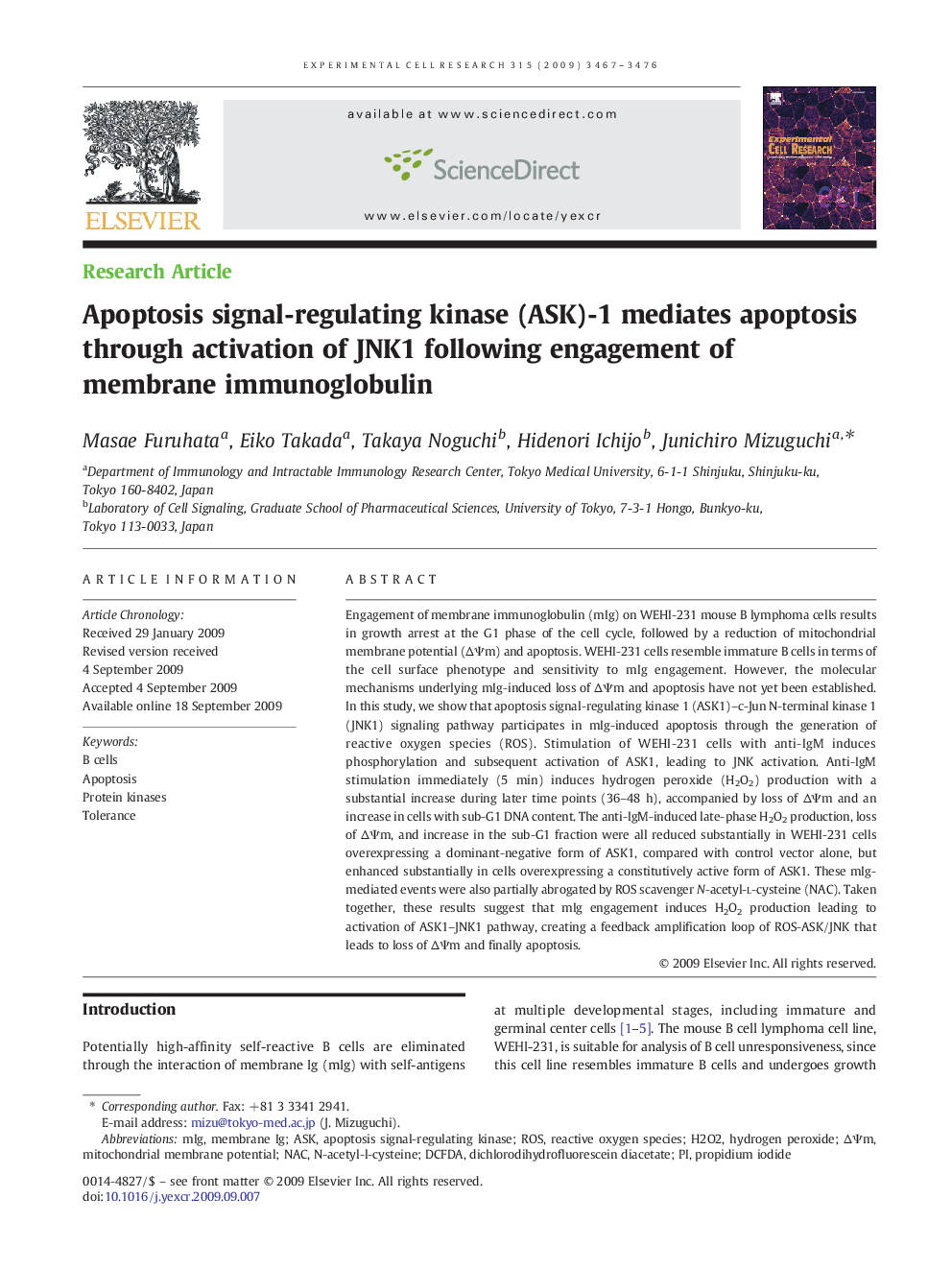| کد مقاله | کد نشریه | سال انتشار | مقاله انگلیسی | نسخه تمام متن |
|---|---|---|---|---|
| 2131453 | 1086643 | 2009 | 10 صفحه PDF | دانلود رایگان |

Engagement of membrane immunoglobulin (mIg) on WEHI-231 mouse B lymphoma cells results in growth arrest at the G1 phase of the cell cycle, followed by a reduction of mitochondrial membrane potential (ΔΨm) and apoptosis. WEHI-231 cells resemble immature B cells in terms of the cell surface phenotype and sensitivity to mIg engagement. However, the molecular mechanisms underlying mIg-induced loss of ΔΨm and apoptosis have not yet been established. In this study, we show that apoptosis signal-regulating kinase 1 (ASK1)–c-Jun N-terminal kinase 1 (JNK1) signaling pathway participates in mIg-induced apoptosis through the generation of reactive oxygen species (ROS). Stimulation of WEHI-231 cells with anti-IgM induces phosphorylation and subsequent activation of ASK1, leading to JNK activation. Anti-IgM stimulation immediately (5 min) induces hydrogen peroxide (H2O2) production with a substantial increase during later time points (36–48 h), accompanied by loss of ΔΨm and an increase in cells with sub-G1 DNA content. The anti-IgM-induced late-phase H2O2 production, loss of ΔΨm, and increase in the sub-G1 fraction were all reduced substantially in WEHI-231 cells overexpressing a dominant-negative form of ASK1, compared with control vector alone, but enhanced substantially in cells overexpressing a constitutively active form of ASK1. These mIg-mediated events were also partially abrogated by ROS scavenger N-acetyl-l-cysteine (NAC). Taken together, these results suggest that mIg engagement induces H2O2 production leading to activation of ASK1–JNK1 pathway, creating a feedback amplification loop of ROS-ASK/JNK that leads to loss of ΔΨm and finally apoptosis.
Journal: Experimental Cell Research - Volume 315, Issue 20, 10 December 2009, Pages 3467–3476